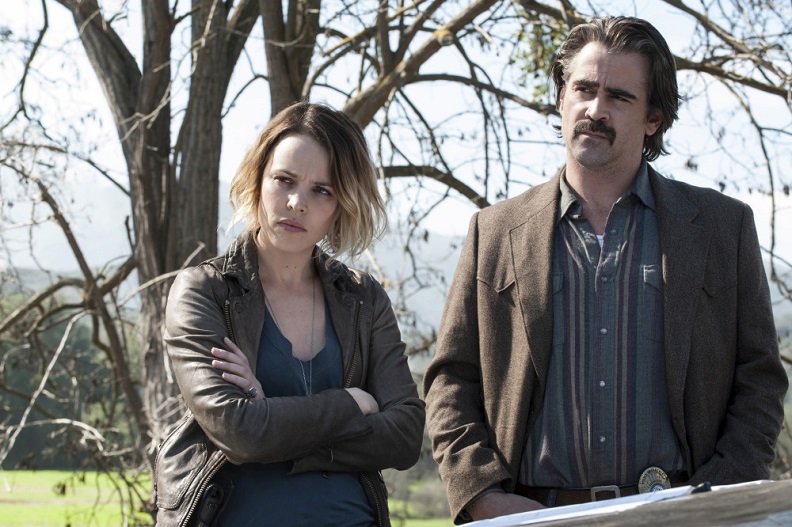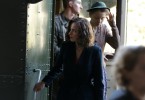True Detective
“Down Will Come”
(HBO)
B
“Down Will Come” is an ambiguous title — until its final shots. The characters seem to be hitting their crossroads as pivotal decisions have to be made or reluctant revelations are thrust upon them. Semyon is now stuck investing in drugs — an avenue he has been trying to steer clear of in favor of “legit” business. Yet, the desperate need to bring his railway back to life thrusts him back into the underground fold. Semyon, much to the reluctance of his wife, spends the bulk of the episode confronting people (with his sleepy eyes) about partnering with him or taking a percentage of their business. His best partners, it seems, are his eyes. We get it; his dead glare is intimidating. But it still just makes me think he needs a nap.
Bezzerides is suspended as punishment for being in a relationship with an insubordinate, compounded by an avalanche of other sexual accusations from her peers. She strongly believes this is retaliation for searching the mayor’s home, or possibly even talking to his daughter who confesses that her father is “a bad man.” Bezzerides is unjustly stuck in a man’s world, trying to fit in and remain strong.
Officer Woodrugh is who “Down Will Come” serves best this week. He finds himself waking up hungover after what appears to be a late night spent with his old army buddy, so disoriented the next morning it makes you believe that whenever he goes on these late night binges — giving into his human impulses — he might as well be popping roofies along with Viagra. This ushers in a morning of pure regret, and just an all around bad day. His bike is stolen and his girlfriend tells him she is pregnant. Oh, wait. Woodrugh likes the idea of starting a family? In one of the most insincere and awkward “I love you” scenes ever, Woodrugh then proposes to his pregnant girlfriend in a late night diner, convincing her that this is the best thing that could happen to them. The exchange is indicative of the extremes Woodrugh will go to in order to lie to himself and those he cares about, just so he can fit in. Woodrugh then — out of the blue — matches a watch with Caspere’s prints to a pimp named Ledo and a prostitute attached to the late mogul. In the following scene, the police are geared to track down Ledo and arrest him for the possible murder of Caspere. It all happens way too fast and comes out of nowhere.
With most everyone either losing (Bezzerides suspension) or gaining (Woodrugh’s pregnant girlfriend) something, our characters do have that looming gloom on them. Even Semyon asks Velcoro to join him full-time, with his darkest sales pitch ever: “Sometimes our worst self is our best self.” They all acknowledge their rattled lives and are forced to uncomfortably adapt, presenting a sense of uneasiness throughout. This discomfort leads to the violent finale, as officers move leisurely toward the warehouse where Ledo resides. We know based on the listlessness of these officers, who are just literally strolling up to the warehouse, that something bad is about to happen.
That said, the last scene is excitingly well shot. It’s lengthy but engrossing and presents us with a catastrophe that feels real. The three leads are the only ones who survive the bloodbath in the street, in an instance that could be labeled either lazy and predictable or purposeful and poetic. It’s reminiscent of what the previous season did in its fourth installment — the now-notorious tracking shot during the housing project chase. This beckons the question: Does creator/writer Nic Pizzolatto intent on merely throwing a great halftime show in the middle of a dull match between good and evil? I won’t call the last scene a desperate attempt to keep the audience interested, but I imagine most of us who’ve made it to this halfway point won’t be quitting now.





